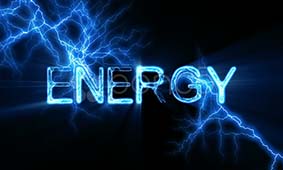
Team of engineers finds solution to turn aluminium waste into clean energy source

As per the report, Smith claims his small company Ecalox has engineered the world’s only zero-carbon aluminium hydroxide reactor. His objective is to establish hydrogen production through waste material, cut carbon emissions, and help recover the value of aluminium rubbish that is often dumped and under-appreciated within the global energy value chain.
At present, industrial hydrogen is mainly generated from steam reformation of methane in fossil fuels, primarily from natural gas. Oil and coal are also used. According to Professor David Book at the University of Birmingham’s School of Metallurgy and Materials, this is the cheapest way to produce hydrogen at the moment but has a lot of carbon-dioxide emissions.
Electrolysis of water is another method of producing hydrogen but is an expensive affair. Smith thinks nobody has the price down below four dollar a kilo at the moment.
On the other hand, Smith points out that global aluminium recycling is still a problem. A huge quantity of aluminium is gathered in landfill instead of being used as a potential ingredient in energy production.
“Just because cans are collected, it doesn’t mean they are recycled,” says Alan Smith.
As recycled drinks cans contain sugar syrup, carbon ends up in the aluminium when recycled, which is also an issue for Smith and his team. After months of research, the engineers have found a solution for their reactor to deal with the carbon from sugar syrup and denatured lacquer. At the end of each reactor cycle, which takes around four years to complete, the end product is low-pressure hydrogen and the key by-product is aluminium oxide. Aluminium oxide can be widely used in fillers, glass, catalysis, water purification, composite fibre, electrical insulation, body armour, and paint.
With $500 to $600-worth of aluminium scrap, Smith reckons his reactor could squeeze out $1,500-worth in aluminium oxide, plus all the energy it produces, he says.
Converting aluminium oxide back into aluminium takes 5 per cent of the energy, compared with the energy required for mining of the material, Smith comments.



Trump weighs using $2 billion in CHIPS Act funding for critical minerals

Codelco cuts 2025 copper forecast after El Teniente mine collapse

Electra converts debt, launches $30M raise to jumpstart stalled cobalt refinery

Barrick’s Reko Diq in line for $410M ADB backing

Abcourt readies Sleeping Giant mill to pour first gold since 2014

Nevada army depot to serve as base for first US strategic minerals stockpile

SQM boosts lithium supply plans as prices flick higher

Viridis unveils 200Mt initial reserve for Brazil rare earth project

Tailings could meet much of US critical mineral demand – study

Kyrgyzstan kicks off underground gold mining at Kumtor

Kyrgyzstan kicks off underground gold mining at Kumtor

KoBold Metals granted lithium exploration rights in Congo

Freeport Indonesia to wrap up Gresik plant repairs by early September

Energy Fuels soars on Vulcan Elements partnership

Northern Dynasty sticks to proposal in battle to lift Pebble mine veto

Giustra-backed mining firm teams up with informal miners in Colombia

Critical Metals signs agreement to supply rare earth to US government-funded facility

China extends rare earth controls to imported material

Galan Lithium proceeds with $13M financing for Argentina project

Kyrgyzstan kicks off underground gold mining at Kumtor

Freeport Indonesia to wrap up Gresik plant repairs by early September

Energy Fuels soars on Vulcan Elements partnership

Northern Dynasty sticks to proposal in battle to lift Pebble mine veto

Giustra-backed mining firm teams up with informal miners in Colombia

Critical Metals signs agreement to supply rare earth to US government-funded facility

China extends rare earth controls to imported material

Galan Lithium proceeds with $13M financing for Argentina project

Silver price touches $39 as market weighs rate cut outlook

















